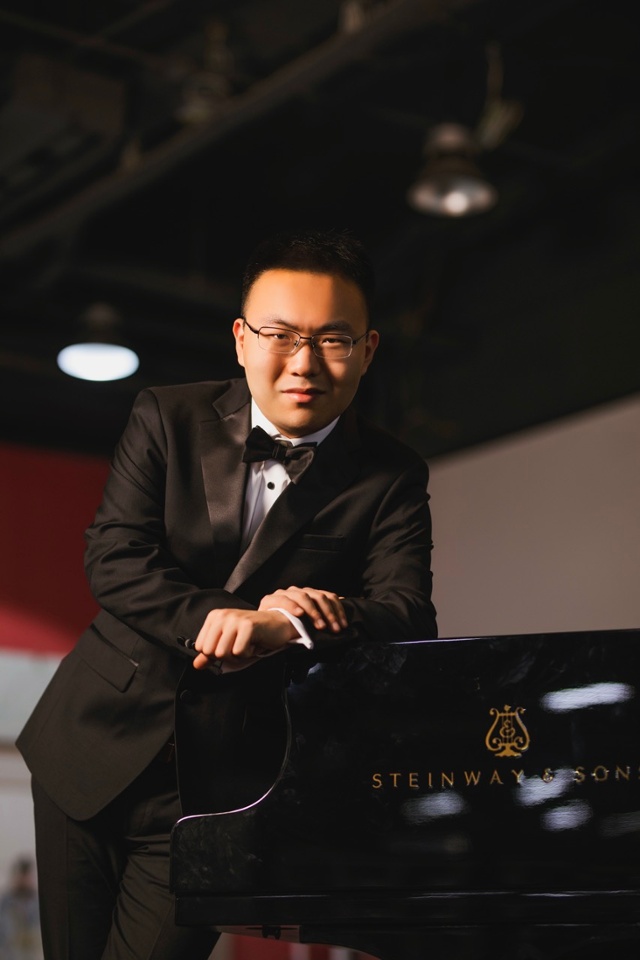Summer 2025
Q&A with Tianxu An

The outstanding young pianist Tianxu An takes center stage on Saturday, July 12, to perform Rachmaninoff’s epic Third Piano Concerto. Ahead of his highly anticipated Festival Napa Valley debut, he shares insights into his artistry and the quiet magic of musical connection.
Read this article in flipbook view
We're thrilled that you're making your Festival Napa Valley debut this summer. What excites you most about performing here?
I’m also thrilled to take part in Festival Napa Valley! I’ve heard Napa is a beautiful place to visit — and, of course, known for excellent wine. This will also be my first time performing in California, so I’m really looking forward to meeting the local audience and experiencing the atmosphere.
Rachmaninoff’s Third Piano Concerto is famously demanding, technically and emotionally. What draws you to this piece, and how do you prepare to perform such a monumental work?
There’s no question that Rachmaninoff’s Third requires strong pianism. But for me, the challenge is part of what makes it so rewarding — it pushes me to go further every time I play it. I started learning the piece when I was 18, and over the years it has become even more meaningful to me. I’m always searching for deeper connections — both logical and emotional — within its many layers. I find that slow practice is essential; it helps me truly feel the weight and meaning behind each note.
During the 2019 Tchaikovsky Competition final, a mix-up led the orchestra to start the wrong piece, forcing you to instantly adjust. Footage of that moment went viral. You handled it with remarkable composure. Looking back, what did you take away from that experience?
What stands out most for me is the honor of performing in the Great Hall of the Tchaikovsky Conservatory, where so many legends, including Horowitz, Richter, and Rachmaninoff once played. The competition itself was a major moment in my life, and gave me valuable exposure. That particular incident reminded me how important it is to stay calm and grounded, no matter the circumstances.
You started playing the piano because your parents believed it would help develop intelligence. At what point did you realize that music was also your passion?
When I was about 14 or 15 years old, I realized that playing the piano was a way for me to express my feelings and thoughts about the world. It also became a powerful way to connect with others.
How does working with different conductors shape your interpretation of a piece?
When working with conductors, which is mostly in concerto repertoire, I find that they usually have a more sophisticated understanding of the piece’s overall structure. They know the piano part and all the orchestral parts. So they can offer suggestions that help me better understand the relationship between the piano and the orchestra or how the piano can blend more effectively to create a richer sound.
You’ve said that “music is a powerful language which establishes a deeply emotional bond among people.” We couldn’t agree more! Can you share a moment in your career when you truly felt that connection with your audience?
It’s hard to name just one moment, but I’ve noticed something fascinating: when I successfully play something peaceful and delicate, I can sense the audience growing profoundly quiet. The air itself seems to be still. In these miraculous moments, I feel the undeniable existence of that bond.
On a lighter note, we love to ask Festival artists what’s on their current playlist? Any new artists or beloved classics you’d love to share?
Herbert Blomstedt’s interpretation of Beethoven and Brahms, Ennio Morricone’s music for movies, and I admire Daniil Trifonov very much.